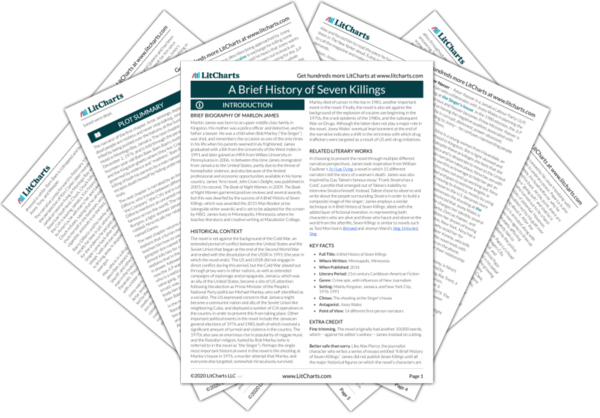AI ToolsNew
Tools to make learning and teaching easier
|
Previous
Part 5, Chapter 10
|
A Brief History of Seven Killings: Part 5, Chapter 11 Summary & Analysis |
Next
Part 5, Chapter 12
|


Upgrade to unlock the analysis and theme tracking for all of A Brief History of Seven KillingsA Brief History of Seven Killings!
Get LitCharts A+